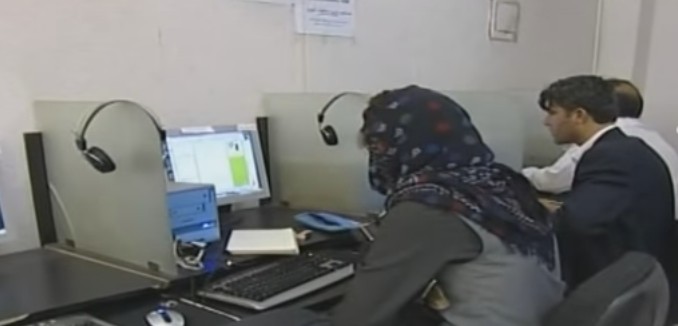Iran’s recently-launched national internet program “doubles as a tool for control” of the country’s population, researcher Collin Anderson wrote Friday for Backchannel, Wired magazine’s investigative outlet.
Iran’s internet has been under governmental control with “a heavy hand since at least 2004,” Anderson wrote. Since the only gateway to the global internet is controlled by a state-owned firm, the government can control access to the outside world, “simplifying censorship and surveillance.” And the government can limit services or slow down internet access at any time it deems necessary, such as during the 2011 pro-democracy protests.
But this control led to technological stagnation, making Iran’s internet among the most unstable in the world. So leaders stated their desire to improve services, while creating what one minister called “a genuinely halal network, aimed at Muslims on an ethical and moral level.”
Iranian President Hassan Rouhani pushed to improving the country’s internet infrastructure by building many Internet Exchange Points (IXPs), which “allow internet service providers and content hosts to connect with each other locally — improving performance, increasing reliability and lowering costs.” This also means less traffic will leave the country. Essentially, the regime is giving Iranian internet users faster browsing speeds in exchange for greater governmental control and surveillance. Rouhani’s administration announced a few weeks ago that the first phase of this plan had been implemented.
Another strategy to increase control of the internet was to fund domestic versions of popular websites and apps. Some of this was done by necessity: Google and Telegram were invited to host servers inside Iran, but “doing so comes with a catch — it requires compliance with Iranian law,” so both companies have turned down the offer.
In the absence of Google, Iran has developed its own browser, called Aparat. Because Aparat is controlled by the government and doesn’t need to be filtered, it “can take full advantage of the new IXPs and data centers to smoothly stream popular Persian-language media in high definition.” Aparat will be part of the next phase of the national internet rollout, focusing on streaming content, early next year.
But limits continue to exist. The Canadian organization ASL19 developed a channel for Aparat to monitor Iran’s parliament, the Majlis. Because ASL19 promotes internet freedom and tools to circumvent filtering, it has often been attacked by Iranian critics. Shortly after it was launched, the channel, Majlis Monitor, was filtered and eventually deleted from the browser. Aparet said it was responding to Iranian authorities, which said that the channel had run afoul of Iran’s Cyber Crimes Law. The Cyber Crimes Law, according to Anderson, “gives authorities broad discretion to police online activities, including criminalizing content that offends ‘public morality’ and the ‘dissemination of lies.’”
“For many,” Anderson wrote, “the national internet will bring positive economic benefits at the cost of less tangible personal freedoms.”
British human rights group Article 19 came to a similar conclusion earlier this year, warning in a report that Iran’s national internet project “significantly increases the government’s ability for surveillance on domestic Internet users.” Notably, Iran already has an abysmal record in granting its citizens unfettered internet access, according to Freedom House.
In July, Iran threatened to ban all iPhones unless Apple opened a store in the country as part of an effort to get all cell phones registered in a national telecommunications database. Three months ago, Iran ordered all messaging apps to begin storing their data inside the country or risk being prohibited from operating in the country. These moves have raised concerns that Iranian users could have their data seized by the government.
In February, an app designed to help users avoid Iran’s morality police was removed by authorities shortly after it was made available.
When Iranian Foreign Minister Mohammad Javad Zarif was asked in 2013 if it was hypocritical for him to have Facebook and Twitter accounts while those platforms were denied to average Iranians, the minister laughed and said, “that’s life.”
[Photo: euronews (in English) / YouTube ]




